 |  |  |
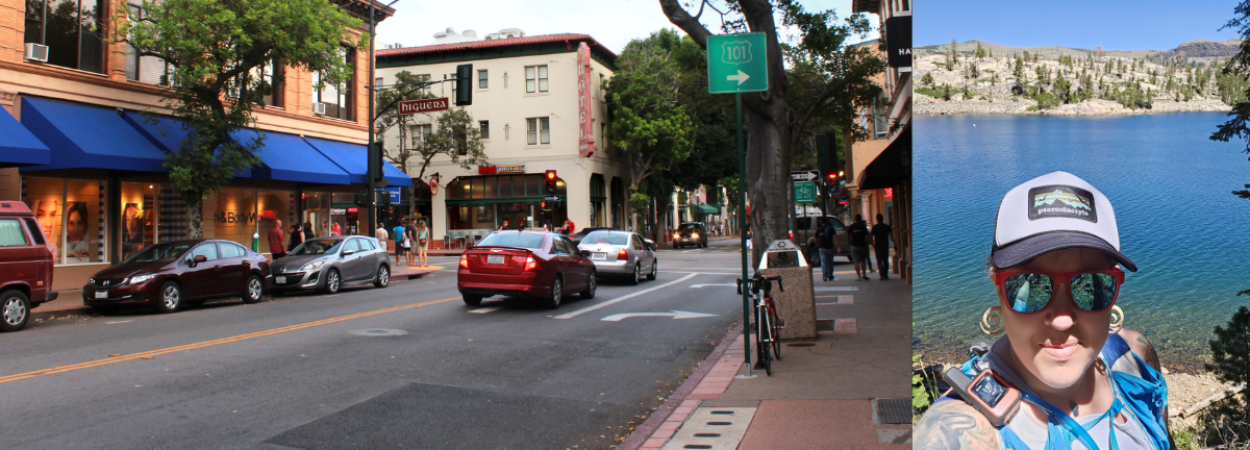
Tara Goddard graduated from Portland State University in 2017 with a Ph.D. in Urban Studies & Planning. She now works as an assistant professor of civil engineering at California Polytechnic State University in San Luis Obispo, California. Previously, she was an assistant, then associate, professor of urban planning at Texas A&M University.
Like most faculty, my days vary a lot, which is something I love about being an academic. Depending on the day of the week, my time is differently split between teaching, research, and service or administrative tasks. For teaching, I may be prepping class or lab, doing teacher trainings, teaching class and lab, grading, arranging guest speakers or field visits, or talking with students in office hours. For research, I may have meetings with r…
Read More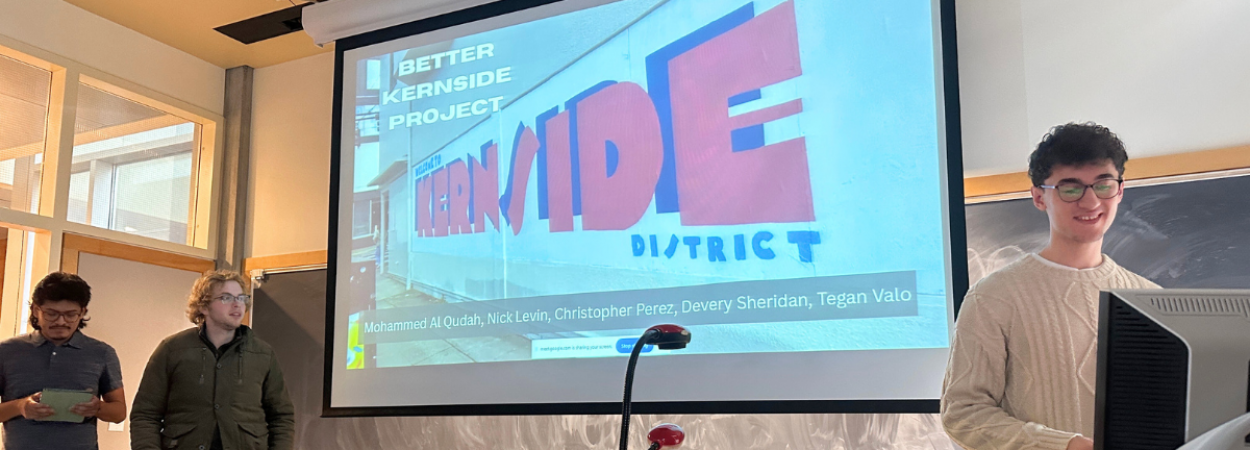
Students in Portland State University’s Urban and Regional Planning program are helping imagine safer, more welcoming streets across Portland.
As part of the Active Transportation Planning–Design Studio, student teams worked directly with community partners to identify solutions that are both realistic and affordable. Last month, three student groups presented final projects that propose improvements for walking and biking in three Portland neighborhoods. The projects were developed through Better Block PSU, a program that connects PSU students with local partners to test ideas and advance people-centered street design.
Together, the projects show how small, strategic changes can make a meaningful difference for safety, accessibility, and neighborhood connectivity.
One team focused o…
Read More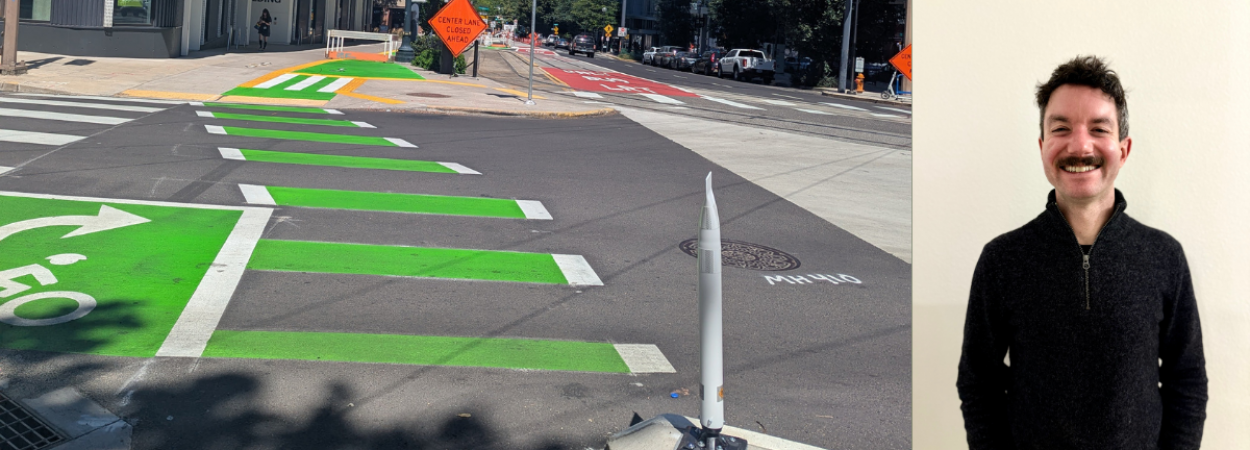
Adam Moore graduated from Portland State University in 2012 with a Master's of Science in Civil Engineering. He now works as a traffic engineer for the Portland Bureau of Transportation (PBOT) in Portland, Oregon, where he helped shape the signals and street lighting for Portland's SW Fourth Avenue Improvement Project. BikePortland rode the new 4th Ave route as soon as it opened – check out the video here!
I work at the Portland Bureau of Transportation as a traffic engineer in the Signals, Street Lighting, and ITS (Intelligent Transportation Systems) Division. I focus on Southwest Portland, where I oversee a few hundred t…
Read More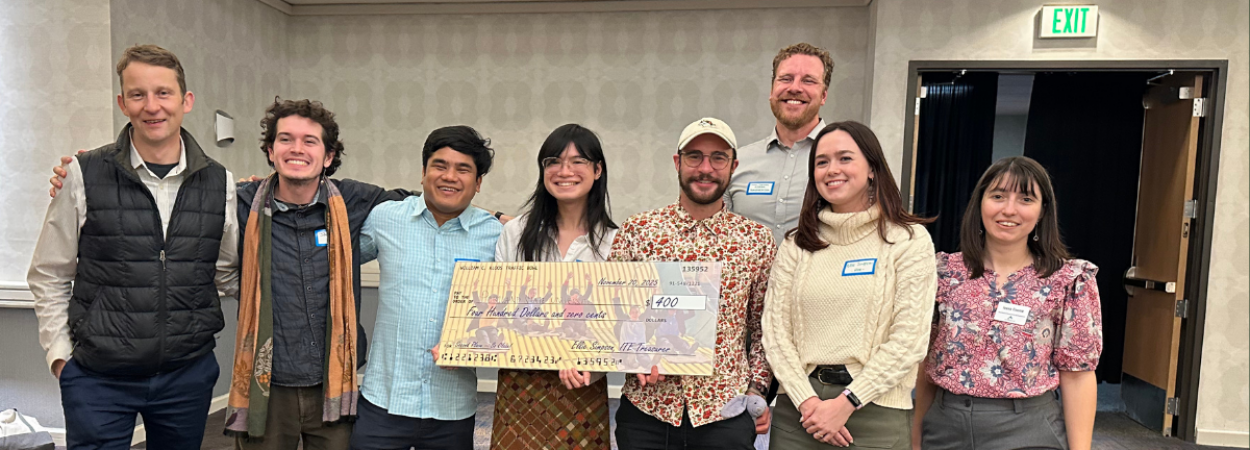
Last month, a team of four Portland State University (PSU) students competed in the 34th Annual Bill Kloos Traffic Bowl, hosted by the Oregon chapter of the Institute of Transportation Engineers (ITE). The PSU team took second place, with Oregon State University (OSU) as the first-place winners. Second prize was a cash award of $400, which PSU's ITE student chapter, Students in Transportation Engineering and Planning (STEP), has added to its club funds.
The funds, and the excitement of receiving a big cardboard check, weren't the only rewards for PSU team members Pabitra Kumar Roy, Elias Peters, Sammy Won, and Jacob Hoopes. They also gained experience and confidence, along with some new knowledge.
"To me, it's a great experience. Meeting new people, quizzing yourself on your academic knowledge. That's really fun, and it also helps me to correlate what I'm learning in my classes to real-life things," said Roy, who will graduate with a masters…
Read More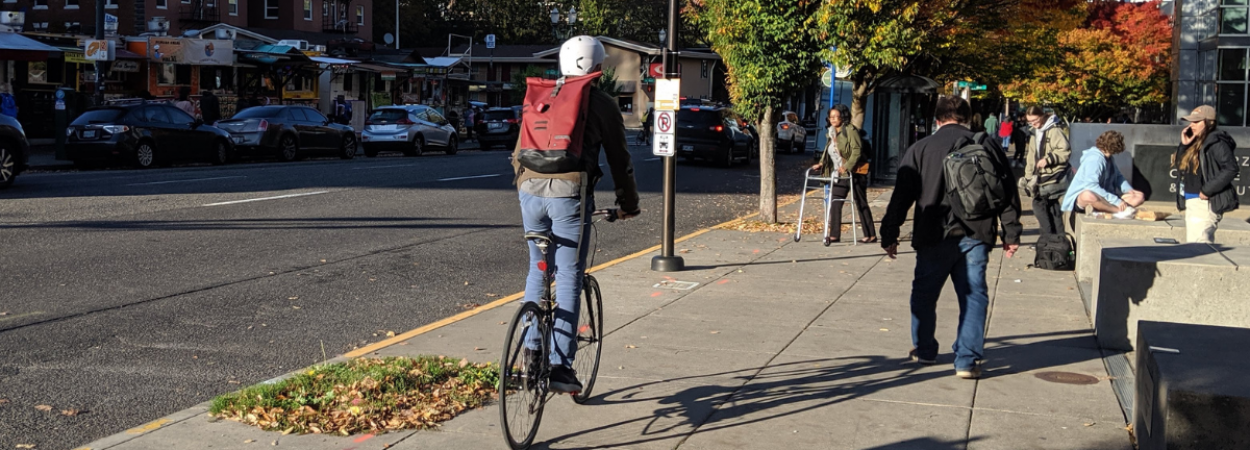
As traffic deaths among people walking and biking continue to rise—and as new mobility technologies rapidly reshape how we all move—Portland State University (PSU) has been selected to lead a major national effort to improve roadway safety and accessibility.
The Transportation Research and Education Center (TREC) at PSU has been awarded a contract from the National Cooperative Highway Research Program (NCHRP) to develop a new Modern Active Transportation Research Roadmap. This roadmap will help the American Association of State Highway and Transportation Officials (AASHTO) set priorities and guide future investments in active transportation across the country.
The new project builds on previous work by PSU. In 2021, TREC partnered with Toole Design Group to create the existing Council on Active Transportation (CAT) Research Roadmap. The coming update—led by PSU's Jennifer Dill, Nathan McNeil, Sirisha Kothuri, and John M…
Read More